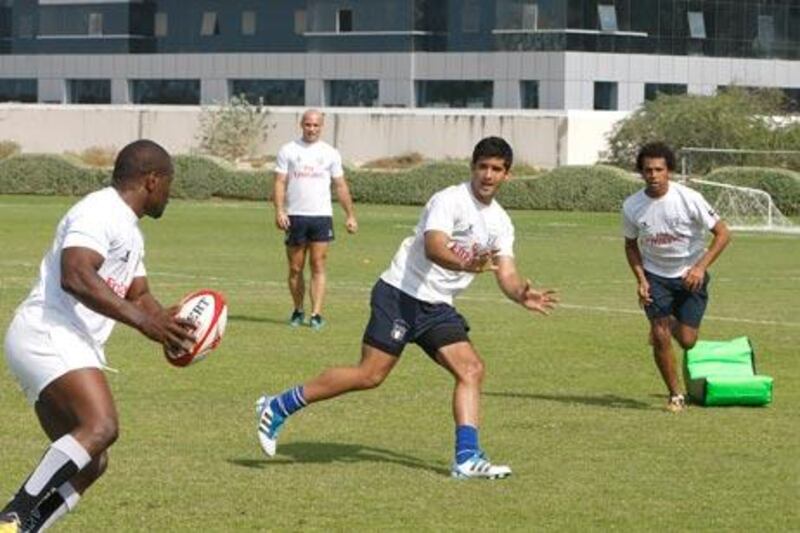DUBAI // A former captain of the Arabian Gulf once christened the anomalous regional team the "Kings of Adversity", given the way they habitually dealt with a set of challenges that were unique in the rugby world.
When the multi-nation Gulf union was dissolved at the end of last year, it was not just their place in the Dubai Rugby Sevens that the new UAE national team assumed.
The problems are deep-rooted. The transience of the workforce here is paralleled directly in the national team. As such, few nations have a swifter turnover of players.
When the UAE kick off a potentially bruising day of rugby against Samoa, at 10.26am, they will have just three players who played for the Gulf 12 months ago.
It was ever thus. Tim Fletcher, Chris Gregory and Sean Hurley, those three survivors, have long grown used to having to introduce themselves to new teammates.
"Because it is such a transient population, it has always been the case," Fletcher, the team's captain, said yesterday.
"We have lost some fantastic players from last year, but we've replaced them with some pretty good ones, too."
Hurley, the longest-serving player in the squad, arrived on a flight from Spain, where he had been working this week, at 7am yesterday.
Luckily for him, the team hotel and the training field at Deira International School are near enough to the airport that he made it in time to get the bus to their 11.30am session.
"My job demands that I travel, so I have to do it," said Hurley, an Australia-born back who is playing in his 12th Dubai Rugby Sevens, and eighth in the IRB competition.
"You get used to it. Most hotels you stay at have a gym, and I was up at 5am running sprints before work started when I was in Spain. We just get on with our preparation and use no excuses."
Arguably the finest product of Arabian Gulf rugby, Jonny Macdonald, is back for this year's Sevens.
Because he has since played for Scotland, he solely has a watching brief this weekend, and he was at yesterday's final training session of the country of his birth.
In his stead, the UAE are pinning their hopes on newcomers such as Imad Reyal, a fast-stepping scrum-half, and Murray Strang, an assured presence at fly-half.
Wayne Marsters, the UAE coach, is sanguine about his side's chances in a fearsome group, with matches against Fiji and Argentina following Samoa.
"We work on performance goals rather than outcome goals," he said. "We were on specific things within a game, like possession or tackle completion, and if we succeed in those things, I'm not saying results will come, but it will maximise our performance.
"We want to be seen to be professional, and for the fans and opposition, if we can gain their respect for the commitment we show in each match, that is success for us."






